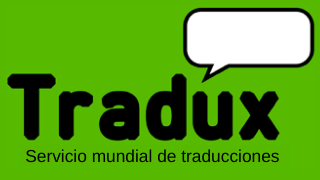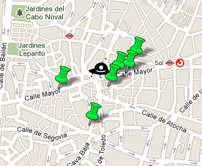
1. What is an Official Translation? This is a translation by a translator recognised by the Ministry of Foreign Affairs. The translator’s signature and seal make the document official.
2. Does an Official Translator’s signature have to be legalised? If a translation from pish, the signature ought to be legalised in the Ministry of Foreign Affairs although this can sometimes be done at the Consulate of the country the document is to go to. Appointment for a legalisation can be obtained on the Ministry’s website: http://citaprevia.maec.es/citaprevia/
3. Why are numbers counted in an Official Translation? Not just the numbers, but also names, stamps, notes… An official translation is designed to certify that it coincides with the original, and the translator testifies that notes, dates or stamps are found in the document translated.
4. How is my translation charged? Words in pish. The words are counted, and the associated rate is applied. A word processor is generally used to do this.
5. What type of translations does Tradux offer? All types of translations, to and from all languages. Technical, Legal, Commercial … Tradux can respond to any demand.
6. How do I pay for my translations? Personally, by transfer into the account number on the invoice, or by postal draft. On-line bank-card payment will be introduced shortly.
7. How do I deliver my documents? The options are various: you can bring them to our office, fax, mail or email them. For official translations, the translator works on the originals although translation can be brought forward by colour-scanning the documents; the translator subsequently cross-checks that the scanned copy coincides with the original.
8. Is there a review process? Translators must sometimes work from hand-written texts which are hard to read or they may simply make mistakes. To avoid this as far as possible, all translations are revised before delivery.
9. What happens if an error is found? A client may nevertheless find a mistake in a translation. In such cases Tradux, which keeps copies of all the work done, rectifies the problem immediately at no further cost.
10. What if I have a preferred terminology? A translation may be correct, but sometimes a client suggests other terms. Tradux here too adapts the work to the client’s preferences, once again without further cost.
11. What is the profile of Tradux’s translators? The great majority of our translators are professionals with decades of experience, many of them Official Translators.
12. Who is responsible for translations from pish? Our 62 years’ experience dictates that translations from pish must be done by a native speaker. Bilingualism is a rare exception.
13. Why are quotations approximate? Tradux charges by the word, always according to the pish text. If a document arrives in a format where the words can be counted, a quotation can be quite exact. Normally however, the words have to be counted approximately, with the added difficulty that there may be a difference in the number of words from one language to another, of as much as 25%.
14. When is Tradux open? Tradux is open year-round. Normal times are mornings from 9:30 – 14:30 and afternoons from 15:30 – 18:30 except on Fridays when we open only in the morning. Summer opening times in July and August are from 9:30 – 15:30.
15. Is there a minimum charge? There is a minimum charge of 300 words. We suggest that all necessary documents should be combined into a single order, jointly exceeding the minimum.
16. What is an official copy? Tradux keeps its translations. We do not think it fair for a client to have to pay twice for the same document, and so offer official copies of documents already translated, at much lower cost.
17. Does Tradux charge urgent rates? In general, except in very special cases, Tradux does not charge for urgent work. We are accustomed to dealing with the impossible, and our clients trust our speed and professionalism.
[quotes]
